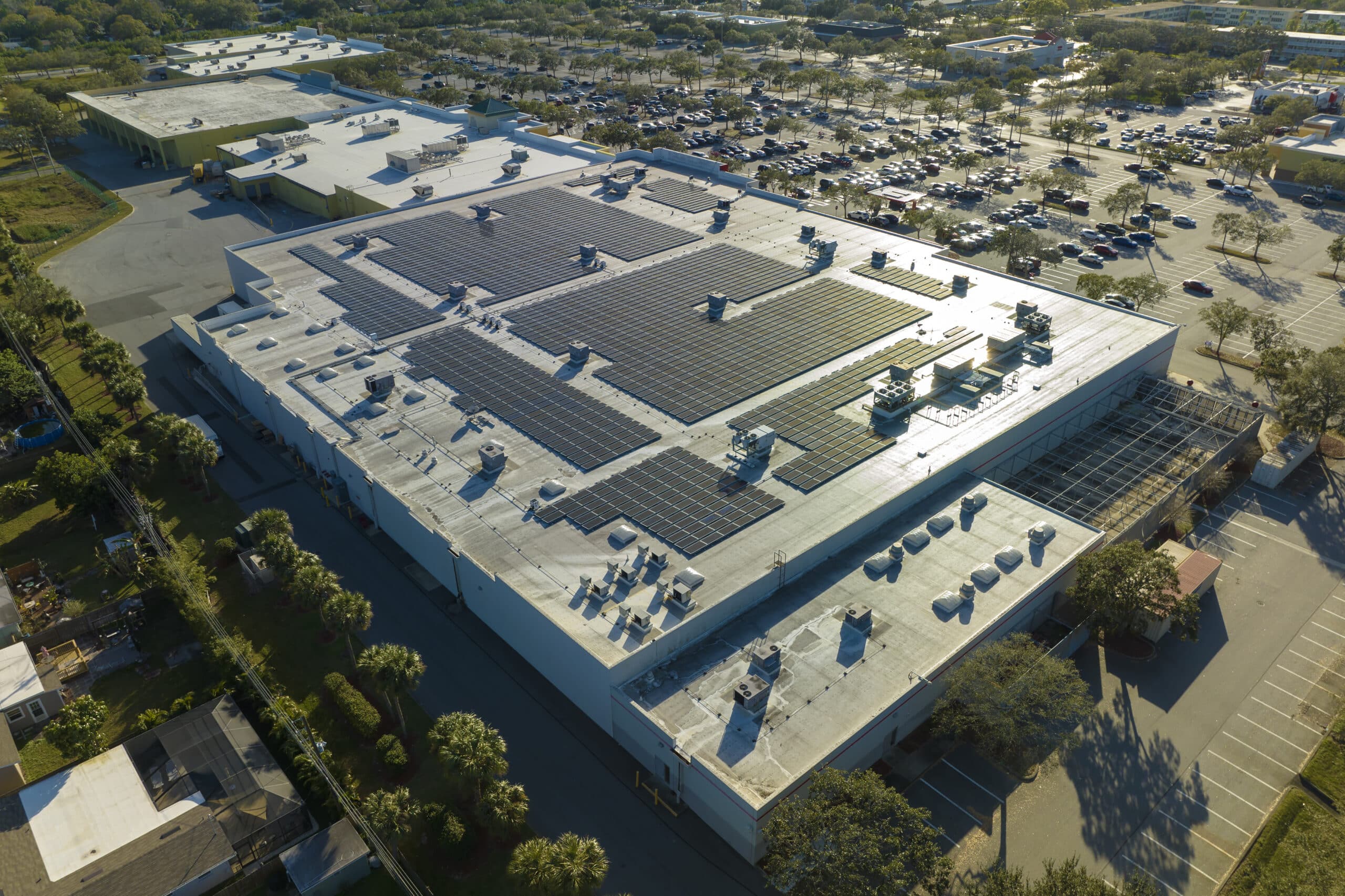Sustainability has become a cornerstone of modern commercial construction, and achieving higher building standards is…

The construction industry is witnessing a revolution with the advent of smart buildings. These intelligent structures leverage cutting-edge technologies to enhance efficiency, sustainability, and occupant comfort. The design-build approach, which integrates design and construction processes, is at the forefront of this transformation. This method ensures seamless collaboration between designers and builders, facilitating the incorporation of smart technologies from the outset.
Integrating smart technologies in commercial construction is crucial for creating spaces that are not only functional but also adaptive and efficient. At Schonsheck, we specialize in delivering innovative design-build projects that embrace the future of intelligent building solutions. In this blog, we will explore how the Internet of Things (IoT), automation, and data analytics are shaping the future of smart buildings, particularly in sectors such as banking and healthcare.
The Role of IoT in Smart Buildings
The IoT is transforming commercial spaces by connecting devices and systems to improve efficiency and performance. In smart buildings, IoT enables real-time monitoring and control of various building systems, such as HVAC, lighting, and security. This connectivity allows for more efficient energy management, reducing operational costs and environmental impact.
For example, IoT sensors can monitor occupancy levels and adjust lighting and temperature settings accordingly, providing optimal comfort while conserving energy. Additionally, IoT-based security systems offer enhanced protection by integrating cameras, access controls, and alarms into a unified platform that can be managed remotely.
In the commercial construction sector, integrating IoT technologies enhances buildings’ functionality and adaptability. IoT technologies allow facility managers to gather valuable data on building performance, identify inefficiencies, and implement improvements. With this data-driven approach, buildings are not only smart but also responsive to the needs of their occupants, making IoT a cornerstone of modern commercial construction.
Automation & Building Management Systems
Automation plays a crucial role in the functionality of smart buildings, enabling efficient management and operation of various building systems. Advanced automation technologies integrate seamlessly into building management systems (BMS), providing centralized control over HVAC, lighting, security, and other essential systems. This integration enhances operational efficiency and improves occupant comfort and safety.
Automated HVAC systems can adjust temperature settings based on occupancy and external weather conditions, providing optimal comfort while reducing energy consumption. Similarly, automated lighting systems can dim or turn off lights in unoccupied areas, further conserving energy. In the healthcare sector, automated systems can manage critical environmental controls, such as maintaining sterile conditions in operating rooms.
Building management systems also provide real-time data and analytics, allowing facility managers to monitor system performance and make informed decisions. This proactive approach helps identify and address potential issues before they become significant problems, reducing downtime and maintenance costs. Integrating automation technologies in smart buildings represents a significant advancement in the design-build approach, making buildings more intelligent and responsive to the needs of their occupants.
Data Analytics & Predictive Maintenance
Data analytics is transforming the way buildings are managed and maintained. In smart buildings, vast amounts of data are generated by IoT devices and automation systems, providing valuable insights into building performance and operations. Analyzing this data allows facility managers to optimize energy usage, improve occupant comfort, and enhance overall building efficiency.
One of the most significant benefits of data analytics in smart buildings is predictive maintenance. By continuously monitoring the condition and performance of building systems, predictive maintenance uses data to identify patterns and predict potential failures before they occur. This proactive approach enables timely maintenance and repairs, preventing costly downtime and extending the lifespan of equipment.
By leveraging data analytics, smart buildings can achieve higher efficiency, reliability, and sustainability levels. This integration of data-driven insights into the design-build process represents the future of intelligent and connected commercial spaces.
Future Trends in Smart Building Design
The future of smart building design is rapidly evolving, driven by technological advancements and the increasing demand for sustainable and efficient commercial spaces. Currently, one of the most significant trends is the integration of artificial intelligence. AI enables buildings to learn from usage patterns and adjust to optimize energy consumption, enhance security, and improve overall operational efficiency. For example, AI can predict occupancy levels and adjust lighting and HVAC systems accordingly, reducing energy waste and improving comfort.
Another critical trend is enhanced connectivity through 5G networks. 5G technology offers faster and more reliable communication between IoT devices, enabling real-time monitoring and control of building systems. This connectivity supports the seamless integration of various smart technologies, enhancing smart buildings’ overall functionality and responsiveness.
Advanced energy management systems are also shaping the future of smart buildings. These systems utilize renewable energy sources, such as solar panels and wind turbines, and energy storage solutions, like batteries. By harnessing and efficiently managing renewable energy, buildings can reduce their environmental footprint and operating costs. Smart grids further enhance energy management by balancing energy demand and supply in real time.
Another emerging trend is the use of smart materials in construction. These materials can adapt to environmental conditions, improving building performance and sustainability. For example, electrochromic glass can change its opacity in response to sunlight, reducing the need for artificial lighting and cooling.
These innovations are transforming the design-build landscape, creating intelligent, adaptive, and eco-friendly commercial spaces. As these technologies continue to advance, the future of smart buildings promises greater productivity, sustainability, and occupant comfort, setting new standards in commercial construction.
The Future of Smart Buildings with Schonsheck
Integrating smart technologies into commercial construction is essential for creating efficient, sustainable, and adaptive spaces. These technologies, from IoT and automation to data analytics and predictive maintenance, enhance building performance and occupant comfort. Schonsheck is at the forefront of this revolution, offering innovative design-build services that incorporate the latest smart building technologies.
By choosing Schonsheck, you ensure your commercial spaces are future-ready, benefiting from smart buildings’ efficiencies and advancements. Embrace the future of intelligent commercial construction with Schonsheck and experience the advantages of cutting-edge design-build solutions.
Discover Design-Build Solutions in Michigan With Schonsheck
Discover groundbreaking design-build solutions at Schonsheck in Michigan. Our dedicated team provides comprehensive services to create smart, efficient, and adaptive commercial spaces. Ensure your commercial building is future-ready with our expert design-build services. Contact us at 248-669-8800 or reach out online for more information and to schedule an assessment.



